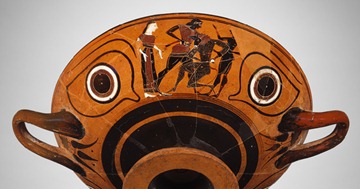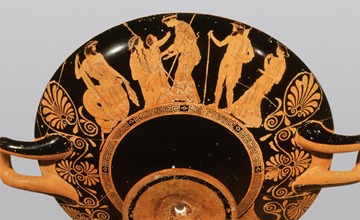- Read up on Mykonos and learn a few words of Greek - Greeks like it when you try speaking their language, it shows respect towards their culture.
- Remove all excess packaging - waste disposal is a problem on the Greek islands. Where most rubbish have to be burned polluting the environment. Keep plastic and waste away from the beaches.
- Ask your hotel for specific tips for responsible travel in Mykonos.
- Ask your hotel whether there are local conservation or social projects that you could visit on your trip, and if/how you could help support them while on holiday
- Buy local produce in preference to imported goods.
- Hire a local guide - you'll discover more about Mykonian culture and lives, and they will earn an income. Guides are available for your trip to ancient Delos.
- Do not buy products made from endangered species, hard woods or ancient artefacts
- Respect local Mykonian culture, traditions and holy places - if in doubt ask advice or don't visit
- Use public transport like buses, hire a bike or walk when convenient - its a great way to meet local people on their terms and reduce pollution and carbon emissions.
- Use water sparingly - its very precious in the Greek islands and tourists tend to use far more than local people.
- Remember that Mykonians have different ways of thinking and concepts of time, this just makes them different not wrong - cultivate the habit of asking questions (rather than the Western habit of knowing the answers).
- Write to your hotel with any comments or feedback about your holiday, and especially include any suggestions on reducing environmental impacts and increasing benefits to the local community.
- Why not donate to a local project in the area you’ve visited?
Above all enjoy and experience the Greek hospitality, gastronomy and unique nature.










![This three-foot-high Iron Age gravemarker is in the form of a mixing vessel (water and wine) used at symposia. It signals the importance of the symposia in Athenian society. People wanted to be remembered for their ability to sponsor these gatherings. [Credit: The Metropolitan Museum of Art] This three-foot-high Iron Age gravemarker is in the form of a mixing vessel (water and wine) used at symposia. It signals the importance of the symposia in Athenian society. People wanted to be remembered for their ability to sponsor these gatherings. [Credit: The Metropolitan Museum of Art]](http://lh6.ggpht.com/_BfC6j03vee0/TSL4u5VYLDI/AAAAAAAAJU4/cnVzrfqFbNA/1atoasttohist_thumb3.jpg?imgmax=800)

 It’s estimated that drinking vessels for symposia comprised up to 60 percent of the terra cotta fineware (collection of dishes) in the typical Athenian home of this period. “The typical home had few useful dishes for eating in contrast to many vessels designed for drinking wine in communal settings,” explained Lynch.
It’s estimated that drinking vessels for symposia comprised up to 60 percent of the terra cotta fineware (collection of dishes) in the typical Athenian home of this period. “The typical home had few useful dishes for eating in contrast to many vessels designed for drinking wine in communal settings,” explained Lynch. By the end of the 5th century B.C., Athens was weathering the Peloponnesian Wars and plague, and people were searching for an escape. This came in the form of an aesthetic restlessness. Fads in drinking cups came and went, but few developed into long-lived styles.
By the end of the 5th century B.C., Athens was weathering the Peloponnesian Wars and plague, and people were searching for an escape. This came in the form of an aesthetic restlessness. Fads in drinking cups came and went, but few developed into long-lived styles.